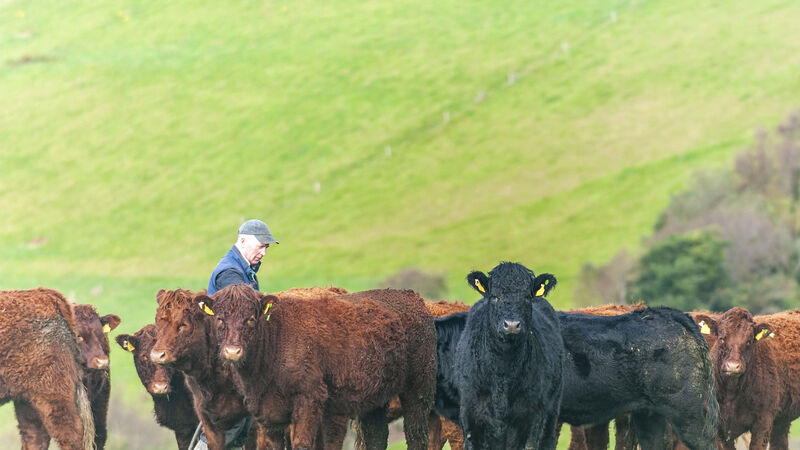Researcher: Reducing Irish beef herd will up global GHG emissions

Researchers estimate that for every animal displaced from the Irish beef herd, 7-8 tonnes of carbon will be added to global emissions. Picture: Andy Gibson
A prominent agricultural researcher has warned that for every beef animal lost from Irish production, another seven to eight tonnes of carbon will be added to net emissions globally to meet consumer demand for beef.
Speaking at the 2023 Bord Bia Meat Marketing Seminar, Paul Crosson, from Teagasc’s Research Beef Enterprise, explained that reducing Irish agricultural output to meet emissions targets will likely result in higher levels of production in areas where livestock farming is associated with significantly higher carbon emissions.











